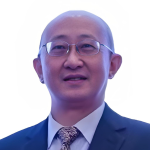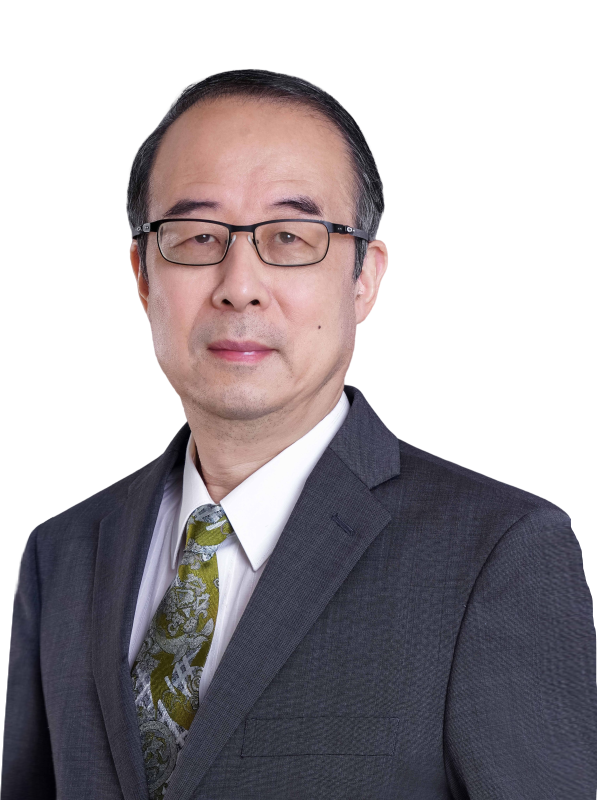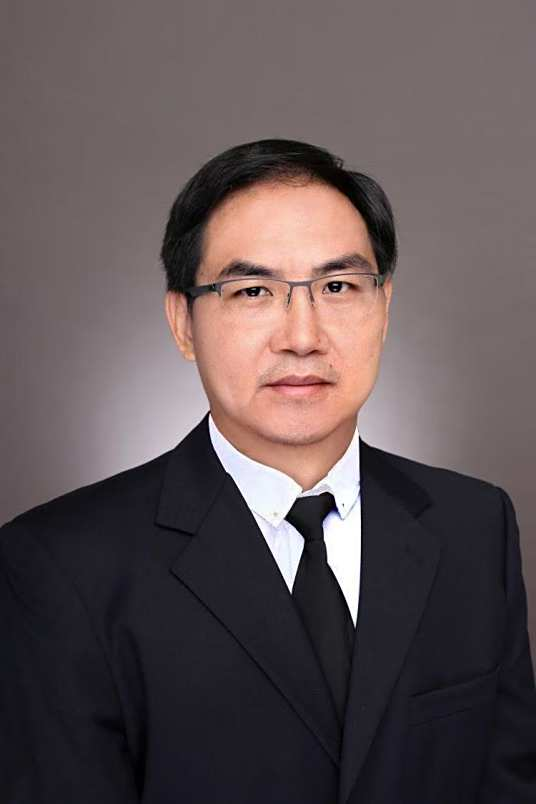
Prof. Honggang Zhang
Macau University of Science and Technology, China
Speech Title: TBA
Abstract: TBA
Bio: Dr. Honggang ZHANG - IEEE Fellow, AAIA Fellow, Full Professor (03/2008-03/2022), Adjunct Professor (04/2022-), College of Information Science and Electronic Engineering; Co-Director, York-Zhejiang Lab for Cognitive Radio and Green Communications; Zhejiang University, China; Founding Chief Managing Editor of Intelligent Computing (12/2021-04/2024), a Science Partner Journal (SPJ), Zhejiang Lab & AAAS (American Association for the Advancement of Science); International Chair Professor of Excellence (12/2012 -12/2014), CominLabs Excellence Center (Laboratoire d'Excellence), Université Européenne de Bretagne (UEB) & Supélec (https://project.inria.fr/chaireueb/), France; Honorary Visiting Professor, the University of York, UK (08/2010-08/2018). Dr. Honggang ZHANG received the Ph.D. degree in Electrical Engineering from Kagoshima University, Japan, in March 1999. Prior to that, he received the Bachelor of Engineering and Master of Engineering degrees, both in Electrical Engineering, from Huazhong University of Science & Technology (HUST), China, in 1989, and Lanzhou University of Technology, China, in 1992, respectively. From October 1999 to March 2002, he was with the Shin-Kawasaki Research Center, Telecommunications Advancement Organization (TAO) of Japan, as a TAO Research Fellow. From April 2002 to November 2002, he joined the TOYOTA IT Center, where he performed research and development on software-defined radio (SDR) with applications to Intelligent Transport Systems (ITS). From December 2002 to August 2004, he has been with the UWB (Ultra-Wideband) Research Consortium, Communications Research Laboratory (CRL) and National Institute of Information and Communications Technology (NICT) of Japan, where his R&D responsibilities were focused on UWB wireless communications, IEEE 802.15.3a & 4a WPAN standardizations, Wireless 1394 and “1394-over-UWB” smart home networks. He was the founding member of UWB Forum and the principle author and contributor for proposing DS-UWB in IEEE 802.15 WPAN standardization task group, for which he initiated the “Soft-Spectrum Adaptation (SSA)” technique and contributed to its worldwide developments. From September 2004 to February 2008, he has been with CREATE-NET (https://create-net.fbk.eu/), where he leaded its wireless teams in exploring Cognitive Radio (CR) and its integration with Ultra-Wideband (UWB) technologies for dynamic open-spectrum wireless communications and networks evolution (i.e. UWB-CR: Ultra-Wideband Cognitive Radio) while participated a number of European FP6/FP7 projects (EUWB, PULSERS 2). Dr. Honggang ZHANG has served as the Chair of the Technical Committee on Cognitive Networks (TCCN) of the IEEE Communications Society (ComSoc) during 2011-2012. He was the Co-Chair of IEEE Globecom 2008 Symposium and IEEE ICC 2013 Symposium. He was the founding TPC Co-Chair of CrownCom 2006 (International Conference on Cognitive Radio Oriented Wireless Networks and Communications 2006) and the Steering Committee Member of CrownCom 2006-2009. He was the General Co-Chair of IEEE GreenCom 2010 (The 2010 IEEE International Conference on Green Computing and Communications) and the TPC Co-Chair of IEEE OnlineGreenComm 2014 (The 2014 IEEE Online Conference on Green Communications). Dr. Honggang ZHANG has been the Lead Guest Editor of the IEEE Communications Magazine feature topic issues on “Green Communications” (2010-2011). He was the Series Editor of IEEE Communications Magazine (Green Communications and Computing Networks Series). He is the co-editor/co-author of two books with the titles of “Cognitive Communications - Distributed Artificial Intelligence (DAI), Regulatory Policy & Economics, Implementation” (Wiley) and “Green Communications: Theoretical Fundamentals, Algorithms and Applications” (CRC Press), respectively.

Prof. Yi Pan
Shenzhen University of Technology, China
Speech Title: TBA
Abstract: TBA
Bio: 潘毅,以江苏省理科状元考入清华大学计算机科学与工程系,1982年和1984年分别获得清华大学工学学士学位和硕士学位,1991年获得美国匹兹堡大学计算机科学博士学位。目前担任深圳理工大学计算机科学与控制工程院院长、讲席教授;美国佐治亚州立大学州校董荣休教授;美国医学与生物工程院院士、英国皇家公共卫生学院院士。主要研究领域是以云计算、大数据分析、人工智能、深度学习等为工具,进行生物信息和医疗信息的研究。在此领域已发表250多篇SCI期刊学术论文,其中100多篇发表在顶尖的IEEE/ACM Transactions/Journals学术期刊上;另在国际学术会议录上发表150多篇学术论文,出版编著了40多本书。他的学术成果已被引用19035,目前H-index是88。

Prof. Wenhong Tian
University of Electronic Science and Technology of China, China
Speech Title: Optimizing large AI models: A few Challenging Problems
Abstract: While Large AI (Language) Models (LLMs) have shown remarkable abilities with widespread adoption, they are hindered by significant resource consumption and considerable latency due to autoregressive processing. Researchers are exploring strategies for running LLMs more efficiently. In this talk, we will discuss a few challenging problems on optimizing the large AI models by more efficient training or inference, and are looking forward to finding some efficient solutions.
Wenhong Tian, a full professor, holds a Ph.D. in Computer Science from North Carolina State University (NCSU) in the United States. The director of Advanced Computing Laboratory at the University of Electronic Science and Technology of China (UESTC). His research focuses on optimizing scheduling of computing resources in Cloud computing and AI platforms, as well as deep learning based image recognition and natural language processing and their applications. He is an Excellent Member of the Chinese Computer Society (CCF) and IEEE Senior Member. He has successively led one general project of the National Natural Science Foundation of China and four international regional cooperation projects, as well as one of the first batch of national key research and development projects for artificial intelligence by the Ministry of Science and Technology of 2030, and more than 20 other projects; In recent years, more than 50 invention patents have been applied for, and more than 20 invention patents have been granted in China and 1 patent has been granted in the United States; Published over 100 high-level papers as the first or corresponding author, and edited 9 Chinese and English monographs. After nearly 20 years of deep cultivation in the field of industry university research cooperation, it has produced good social and economic benefits. In 2023, it was awarded the "Spark Award" by Huawei and was one of the nine winners of UESTC.
© 2020-2025 6th International Conference on Computers and Artificial Intelligence Technologies--cait_conference@163.com.